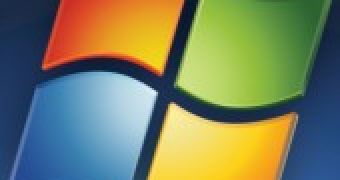Windows 8 plays nice not only with next generation hardware, but also with additional enhancements coming with future form factors, delivering unmatched performance, especially in boot scenarios. Case in point: Unified Extensible Firmware Interface (UEFI). A plethora of Windows 8 details were unveiled the past week at D9 and Computex events, and my advice is to absolutely watch the presentation of Corporate Vice President of the Planning, Hardware and PC Ecosystem team Michael Angiulo in Taipei, Taiwan.
An excerpt of Angiulo’s session is embedded at the bottom of this article, specifically the part where he talks about the increase in start-up speed for upcoming Windows 8 form factors.
According to Angiulo, next generation systems equipped with UEFI and SSDs (solid-state drive) will enable users to benefit from a boost in boot performance unlike any release of Windows.
I remember a demo of Windows 7 from the early stages were development, and the software giant’s claims that the OS start-up took as little as 25 seconds, and even less in some scenarios.
At Computex, Angiulo revealed that systems with UEFI and SSDs could wrap up a cold boot in six or seven seconds at most.
UEFI, designed as the replacement for BIOS, is a software interface that sits between an operating system and the platform’s firmware. Just as BIOS, UEFI deals with pre-loading all drivers and getting the hardware ready for the operating system to boot.
At Computex 2011, Insyde Software announced that its own UEFI BIOS solution, dubbed InsydeH2O already features support for Windows 8.
According to Insyde Software, “initial testing of InsydeH2O booting “Windows 8” reveals up to a 40% savings in BIOS boot times as compared to Windows 7 on the same platforms.”
There are additional benefits to using UEFI instead of BIOS on top of performance enhancements, such as a more secure boot.
“Insyde maintains a close working relationship with Microsoft to support the current and future UEFI firmware requirements for Windows,” revealed Jeremy Wang, CEO of Insyde Software.
“Our mutual customers rely on Insyde to enable some of these major advances of the new generation operating systems and we’ll provide these technologies in time for the next version of Windows,” Wang added.
UPDATE: Minor adjustments to make it clear that Windows 8 6 seconds boots are not the norm just yet.

 14 DAY TRIAL //
14 DAY TRIAL //